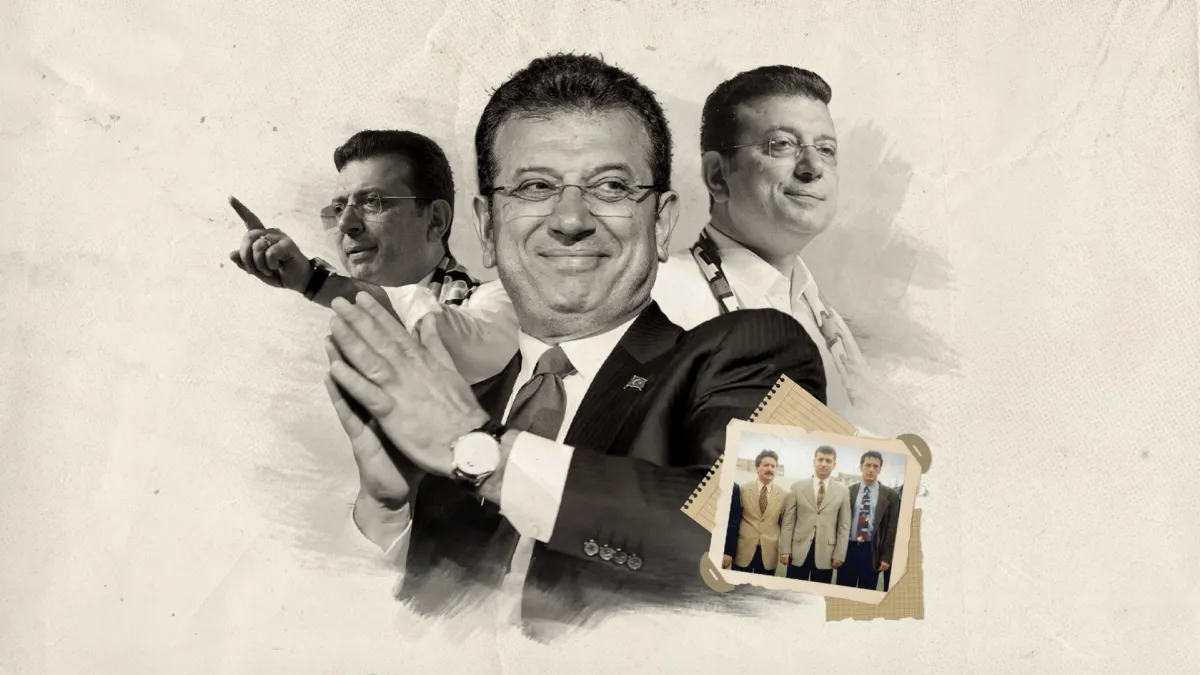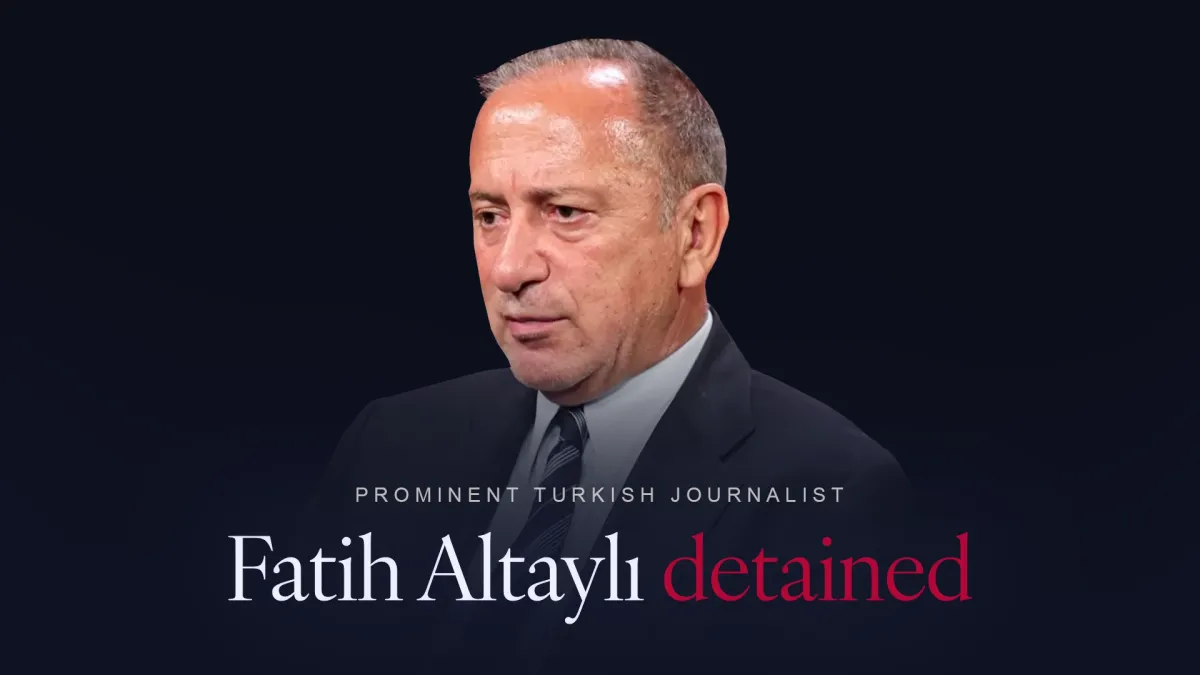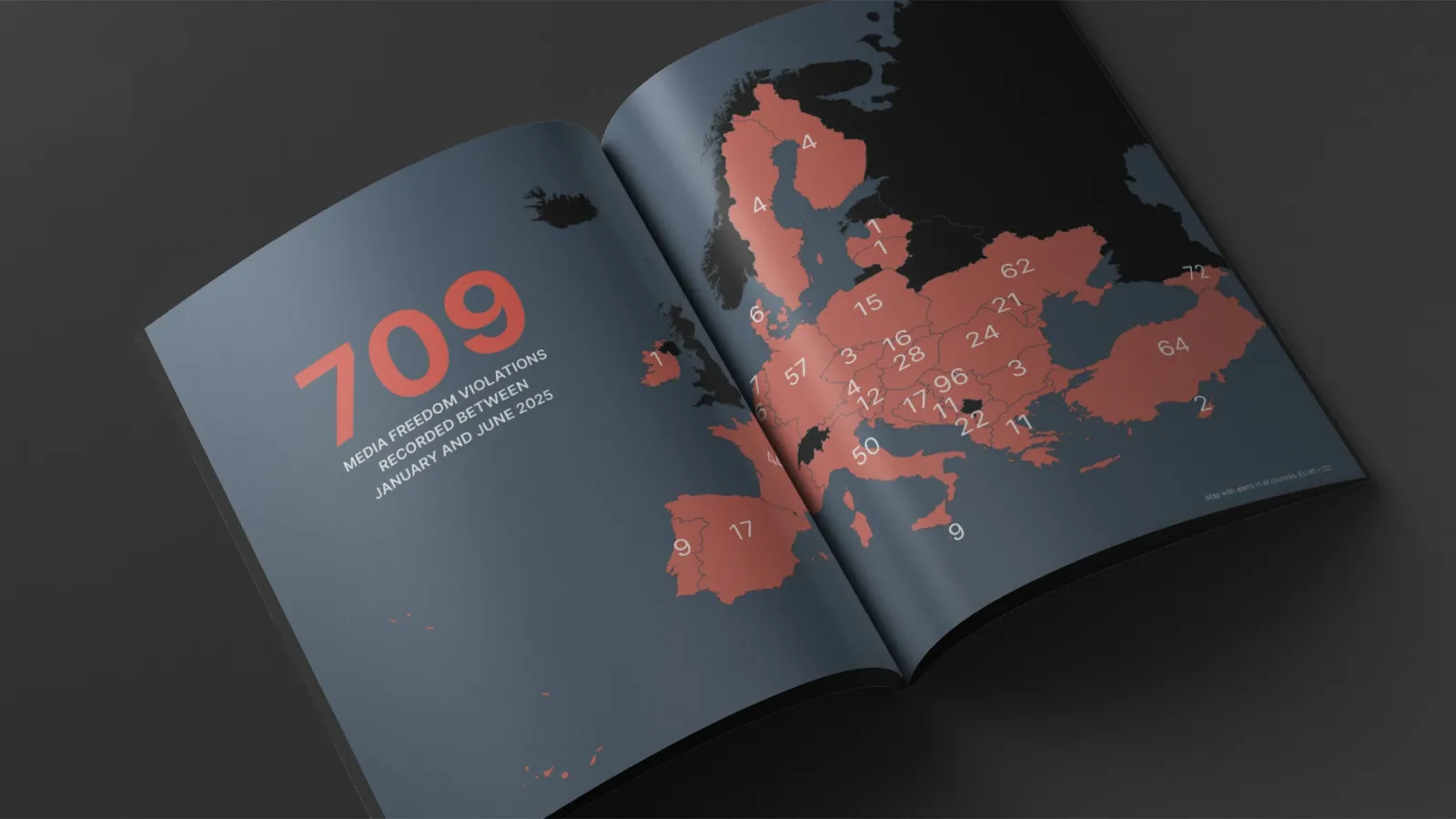The Media Freedom Rapid Response (MFRR) has published its latest report focusing on the media freedom violations in Europe, with also a chapter focusing on Turkey's media freedom during the first six months of 2025.
At a first glance to the chapter, the outstanding development that marks the first half year of the media freedom field in Turkey is the arrest of Istanbul Metropolitan Mayor and main opposition Republican People’s Party (CHP) presidential candidate Ekrem İmamoğlu and the protests and other events that followed after this.
In March 2025, Turkey’s fragile democratic promise cracked open once again.
Hundreds of thousands of people poured into the streets, refusing to bow down to the pressure leading to İmamoğlu’s arrest which has been perceived by millions as politically motivated.
As thousands chanted slogans demanding accountability and calling for the resignation of the president, a second line of repression was unleashed, focusing on the silencing of those documenting the moment.

Assaults against journalism during protests
Journalists across the country -especially in Istanbul’s Saraçhane where the Metropolitan Municipality is located- covered the protests and other developments around them and their work allowed the public voices to be amplified, allowing the whole country to see and remember what happened. However, journalists were met with rubber bullets, tear gas, batons and arbitrary detentions.
During this process, one incident particularly stood out with BirGün’s Ebru Çelik getting tear gassed at close range and beaten on the ground, as her protective gear was stripped away before she was sprayed with tear gas in her face directly, leaving visible injury marks.
This deliberate acts of cruelty and brute force targeting journalists who were covering the repression against critical voices has become the sign showing that the police targets protestors and journalists alike, equally repressing the right to assembly and media freedom at the same time.
According to the findings of the report, there were at least 19 instances where journalists covering İmamoğlu's arrest and the wave of protests that followed it, were subjected to press and media freedom violations.
These cases were not isolated accidental instances but deliberate and intentional targeting of the members of the media.
This open targeting of the media sends a clear message, “there is no immunity for journalists in today’s Turkey!”.
Courts, police, and regulators united against journalists
The MFRR report shows that half of the violations in 2025’s first six months were a direct result of the actions of the judiciary. While the primary goal of the judiciary should be ensure the prevalence of rights and liberties for all, in Turkey the courts have turned into instruments of censorship, issuing arrest warrants and prison sentences to journalists, initiating baseless investigations, keeping the sword of justice over the heads of those criticising the government policies or witnessing the suppression.
While the courts became the main violators of media freedom, the police continued their habitual role of enforcing silence, becoming responsible for a third of the attacks and assault against journalists in the first half of the year in 2025. On the other hand, the media regulator Radio and Television Higher Council (RTÜK) continued threatening independent media outlets with cancellation of their licenses, issuing heavy monetary fines, pushing all media outlets to echo the official narrative. When all three pillars are united -courts, police, media regulator- to suppress media freedom, the result becomes a suffocating environment where truth and facts become criminal.

The fragility of digital resistance
It has been a long time that the conventional media has fallen predominantly into the hands of government control.
In this atmosphere, in the last 15 years with an increasing tendency people have been turning to digital platforms to access news that is not completely controlled by the government narratives; becoming a lifeline for accessing information.
However, in March this lifeline was also abruptly cut when the access was throttled to these platforms not only blocking people from accessing news but also hindering journalists from publishing the news in the first place.
This digital repression has become a collective punishment whenever political developments become risky for the governing alliance.
Why this matters beyond Turkey
Without the work of the journalists as witnesses to all that happens, a democracy is only a hollow title to describe a governance style.
When the media is controlled by the government, everyone living under such an environment becomes vulnerable to abuse.
What has been happening in Turkey is a case study showing how repression spreads, not only in the government bodies but also among the once-separated powers of the state.
Courtrooms have become punishment centres for free expression; police crushes journalists indiscriminately as they intervene in peaceful protests; media regulator issues continues fines and broadcast bans and digital platforms repeatedly get throttled to blind the public view.
Under these circumstances in Turkey, what is developing currently also echoes beyond its borders.
The authoritarian playbook is coming increasingly transnational; leaders citing each other’s “achievements” when referring to legislative processes, supposedly legitimising that they need to pass these restrictive laws to catch up with the rest of the world; courts get politicised, disinformation campaigns are rampant, judicial harassment of journalists becomes a continuous matter and regulatory bodies get weaponised against free flow of information.
It is important for the world to realise what is happening in Turkey, otherwise the challenges that have been smothering the civic space in Turkey for decades now are prone to spreading elsewhere, especially if media freedom is allowed to decline unchecked.
Defense line
Having mentioned all the problems and referring to the major problems faced by the media in Turkey, it is also important not to forget the courage of independent journalists.
Even though they are heavily persecuted, physically assaulted, subjected to censorship, or having to live in exile far from their loved ones and audiences, journalists of Turkey are presenting a marvellous example of resilience in the face of such horrendous assault on media freedom.
This resilience is the testimony that the struggle for free expression is not over; it is alive on the streets of all the cities and regions, every time a reporter raises a camera or holds a pen.
Yet, bravery alone cannot counter repression.
International solidarity, legal pressure, and outspoken advocacy are essential.
To defend Turkish journalists is to defend the very idea of truth as a public good.
Without it, democratic societies, whether in Ankara or elsewhere, risk losing their most vital witness.





